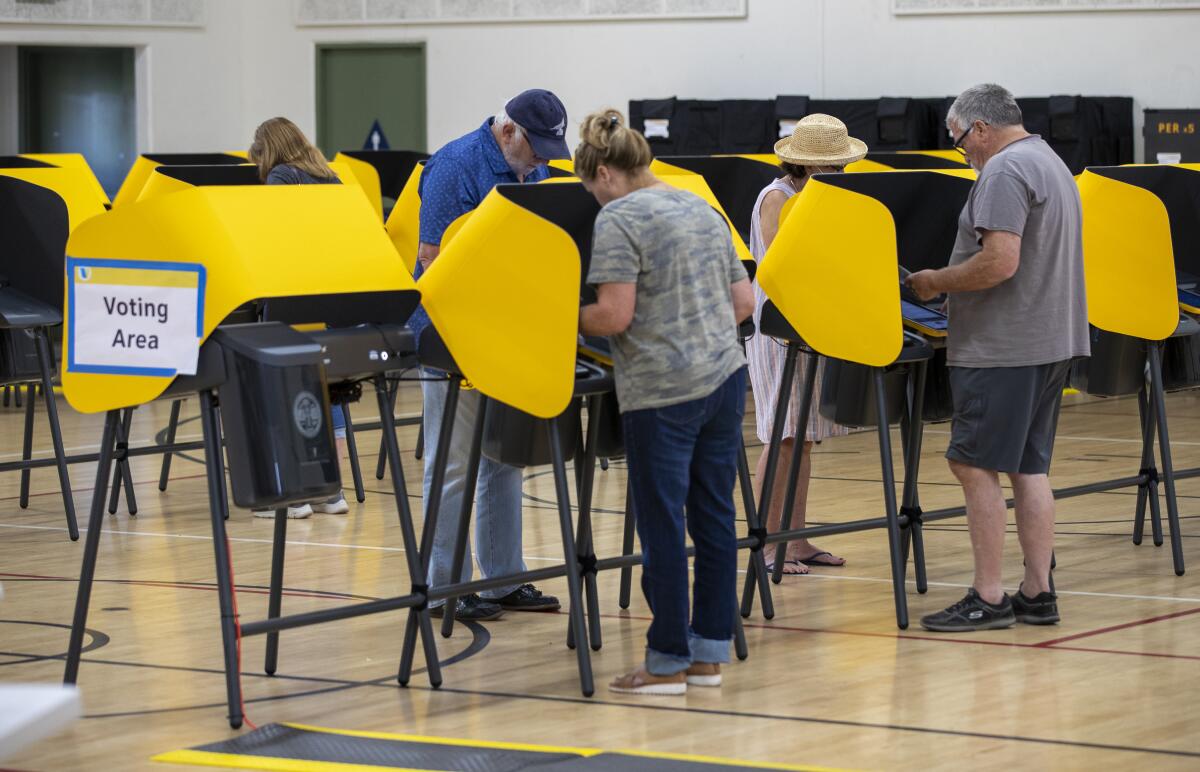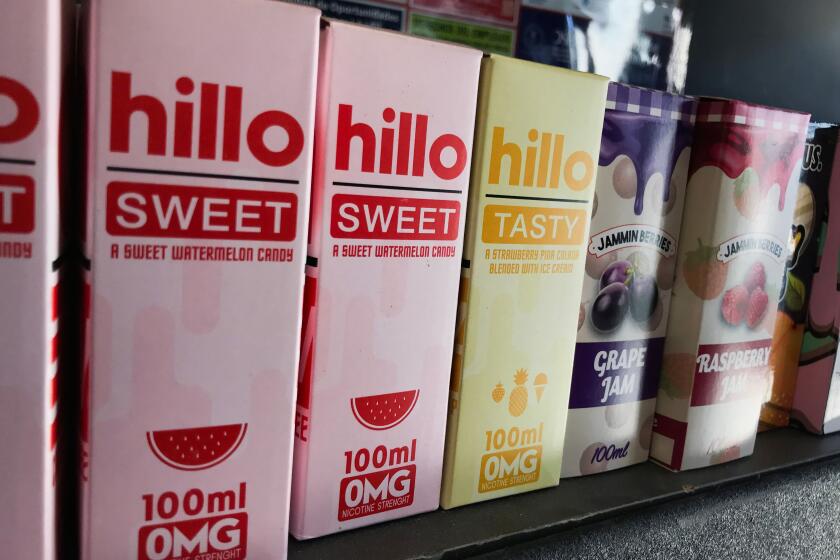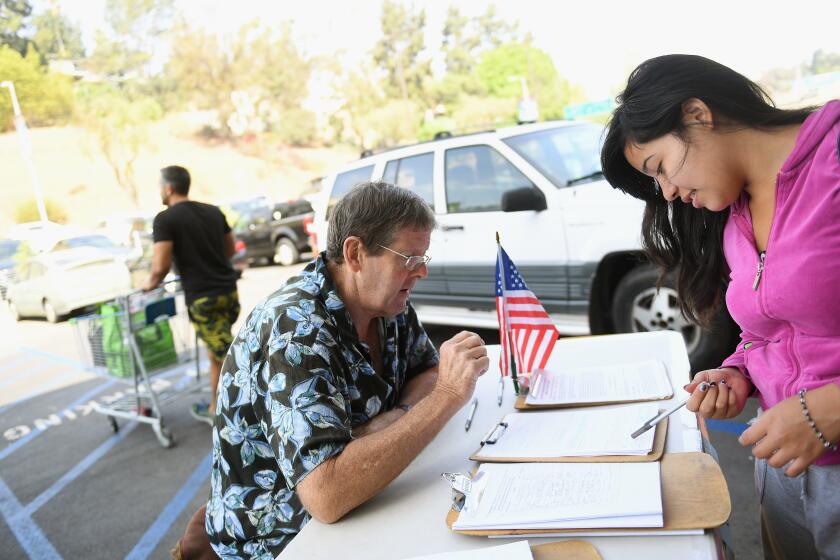Editorial: When it comes to voting in California, yes should mean yes

- Share via
Gov. Gavin Newsom signed into law a bill by Assemblymember Isaac Bryan (D-Los Angeles) last week that injects some much-needed clarity into future ballots. Assembly Bill 421 does so with a simple change to the way referendum questions are phrased: Instead of being asked to choose between “yes” and “no,” voters will select from “keep the law” and “overturn the law.”
Why is this important? Because when it comes to a referendum, yes doesn’t mean yes in the usual way. For example, a ballot initiative is used to propose a new law — say, legalizing marijuana. A “yes” vote means “Yes, I like this idea. Let’s make it happen.”
Referendums — ballot measures that ask voters to overturn a law passed by the Legislature — work the opposite way. A “yes” vote rejects the request to repeal a specific law. “No” supports the repeal. It’s counterintuitive and gets confusing leading up to an election, with backers of the referendum urging voters to check “no” while opponents urge “yes.”
Cigarette companies, fast-food chains and oil producers are spending millions to try to halt laws that are in the public interest.
It’s impossible to say whether uncertainty about what yes and no mean has ever led to a different election outcome than a majority of voters intended, but the confusion is real. In a recent Public Policy Institute of California survey, three-fourths of likely voters in California said referendum language is often too complicated and they are not always certain what would happen if it passes. That’s troubling because overturning a law passed by the Legislature can have profound consequences on the lives and livelihoods of Californians.
With this new wording, which Bryan says was developed with the help of focus groups, the choice should be crystal clear.
It is especially important that voters know what exactly their vote means on a referendum because industry groups and other deep-pocketed interests increasingly use the ballot as a way to get rid of laws they don’t like. Two such referendums have qualified for the November 2024 ballot.
Some people are asking for signatures with false or misleading descriptions of the petitions they’re circulating.
One was funded by fossil fuel companies to overturn a state law passed last year to limit oil drilling near homes and schools. The other is an effort by restaurants to overturn a law that could increase pay for fast-food workers.
And an earlier version of AB 421 would have required that unpaid volunteers collect at least 5% of signatures needed to qualify a referendum, rather than letting proponents rely exclusively on paid signature gatherers. The idea was to ensure that there is at least some grassroots support behind a referendum, but that controversial provision was removed before the bill passed in the state Senate.
But an important transparency measure remains: The top three funders of a referendum must be listed in the state voter information guide so that voters can clearly see whose interests will be served by overturning the law. The bill also adds a withdrawal period, similar to one for other ballot initiatives, in which proponents can choose to remove a qualified referendum from the ballot 131 days before the election.
These changes are supported by an array of good-government groups that see AB 421 as a way to improve California’s 112-year-old direct democracy system, which — though flawed in many ways — remains an important check on legislative power.
More to Read
A cure for the common opinion
Get thought-provoking perspectives with our weekly newsletter.
You may occasionally receive promotional content from the Los Angeles Times.












